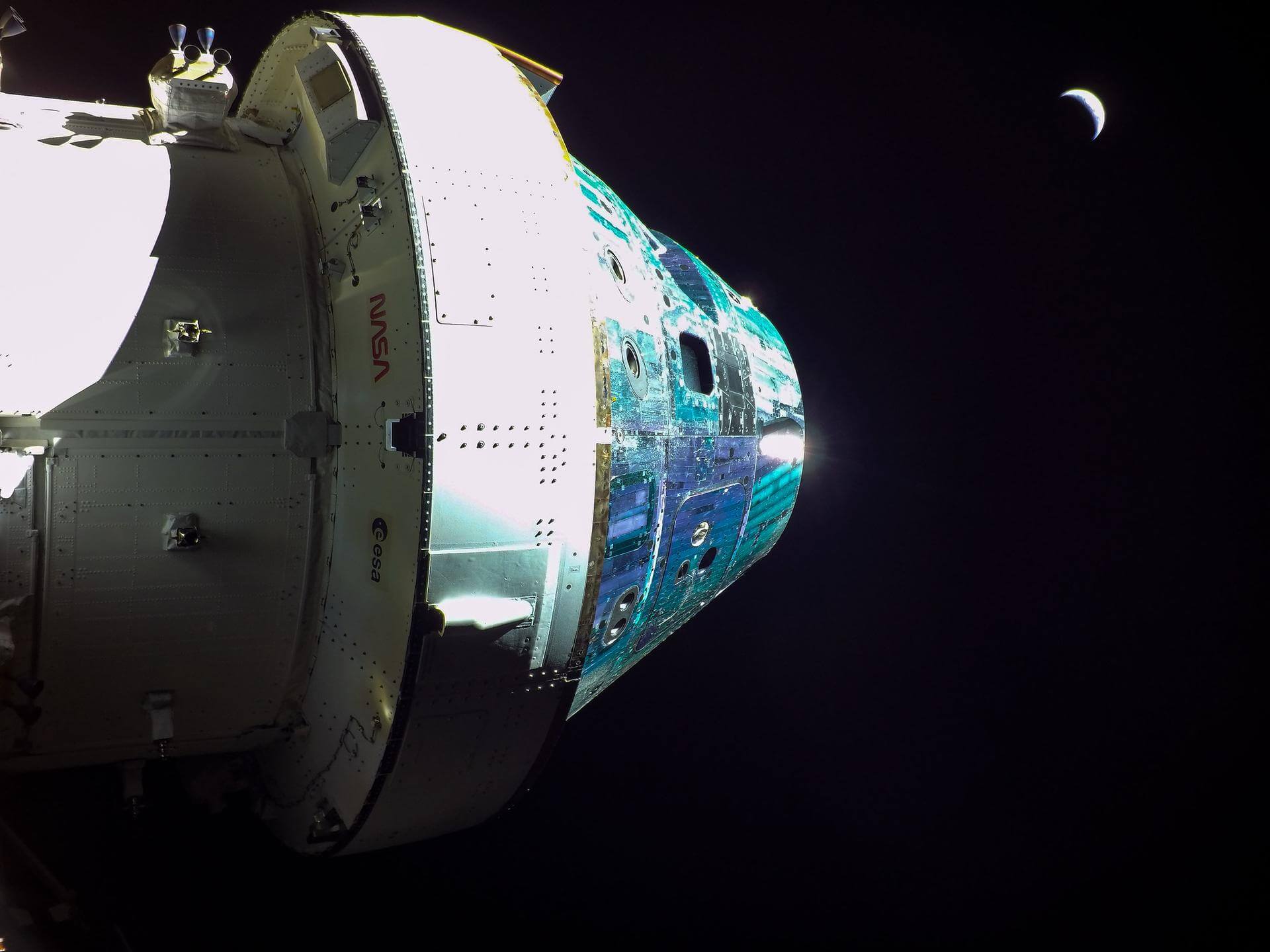
Orion
Active Human Rated Capsule Crew Capacity: 4 Payload Capacity: 100 kg Diameter: 5.03 m Height: 3.3 m()
Nov. 16, 2022
Lunar Missions.
Flight Life
21.1 days
Description
The Orion MPCV takes basic design elements from the Apollo Command Module that took astronauts to the moon, but its technology and capability are more advanced. It is designed to support long-duration deep space missions, with up to 21 days active crew time plus 6 months quiescent. During the quiescent period crew life support would be provided by another module such as a Deep Space Habitat. The spacecraft's life support, propulsion, thermal protection and avionics systems are designed to be upgradeable as new technologies become available. nn The MPCV spacecraft includes both crew and service modules, and a spacecraft adaptor. The MPCV's crew module is larger than Apollo's and can support more crew members for short or long-duration missions. The service module fuels and propels the spacecraft as well as storing oxygen and water for astronauts. The service module's structure is also being designed to provide locations to mount scientific experiments and cargo.
History
The Orion Multi-Purpose Crew Vehicle (Orion MPCV) is an American spacecraft intended to carry a crew of four astronauts to destinations at or beyond low Earth orbit (LEO). Currently under development by NASA for launch on the Space Launch System, Orion is intended to facilitate human exploration of asteroids and of Mars, as well as to provide a means of delivering or retrieving crew or supplies from the ISS if needed.
Falcon 9
Starlink Group 10-25
Space Launch Complex 40 - Cape Canaveral SFS, FL, USAA batch of 27 satellites for the Starlink mega-constellation - SpaceX's project for space-based Internet communication system.
Falcon 9
MTG-S1
Launch Complex 39A - Kennedy Space Center, FL, USASecond of EUMETSAT's third generation of weather satellite.
New Shepard
NS-33
West Texas Suborbital Launch Site/ Corn Ranch - Corn Ranch, Van Horn, TX, USANS-33 is the 13th crewed flight for the New Shepard program and the 33rd in its history.
Falcon 9
Starlink Group 15-7
Space Launch Complex 4E - Vandenberg SFB, CA, USAA batch of 26 satellites for the Starlink mega-constellation - SpaceX's project for space-based Internet communication system.
H-IIA
GOSAT-GW (Ibuki GW)
Yoshinobu Launch Complex LP-1 - Tanegashima Space Center, JapanGOSAT-GW (Greenhouse Gases Observing Satellite Greenhouse gases and Water cycle), also known as Ibuki GW and formerly known as GOSAT 3, is JAXA's nex…
Electron
Symphony In The Stars
Rocket Lab Launch Complex 1B - Rocket Lab Launch Complex 1, Mahia Peninsula, New Zealand'Symphony In The Stars' is the first of two dedicated missions on Electron to deploy a single spacecraft to a 650km circular Earth orbit for a confid…
Falcon 9
Starlink Group 10-34
Space Launch Complex 40 - Cape Canaveral SFS, FL, USAA batch of 27 satellites for the Starlink mega-constellation - SpaceX's project for space-based Internet communication system.
Electron
Get The Hawk Outta Here (4x HawkEye 360)
Rocket Lab Launch Complex 1A - Rocket Lab Launch Complex 1, Mahia Peninsula, New ZealandHawkEye 360 is a a space-based civil global intelligence satellite network using radio frequency (RF) technology to help monitor transportation acros…
Falcon 9
Starlink Group 10-16
Space Launch Complex 40 - Cape Canaveral SFS, FL, USAA batch of 27 satellites for the Starlink mega-constellation - SpaceX's project for space-based Internet communication system.
Falcon 9
Axiom Space Mission 4
Launch Complex 39A - Kennedy Space Center, FL, USAThis is a Crew Dragon flight for a private company Axiom Space. The mission will carry a professionally trained commander alongside three private ast…

